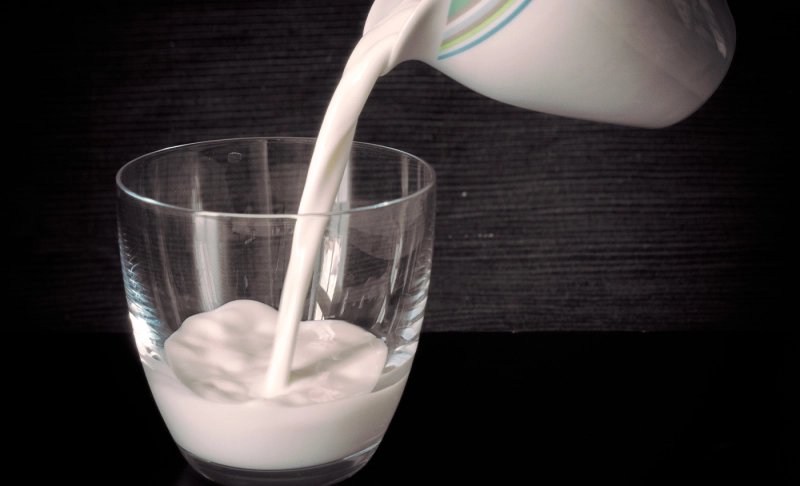By: Ankita Kulkarni
April 18 2023
No, Vitamin D present in milk is not going to 'poison' you

The Verdict False
The amount of Vitamin D present in milk is safe and essential to the human body. Excessive intake of supplements leads to Vitamin D intoxication.
Context
A Facebook video falsely claims, “If you get your vitamin D from anywhere other than the Sun then you're being poisoned,” and that vitamin D present in milk is actually “Cholecalciferol," a chemical used as rat poison that is harmful to humans. The video alleges that as a part of the New World Order, “rat poison” is being added to milk by the government for human consumption and claims that vitamin D causes breast cancer in women. The video, which appears to have been cross-posted from TikTok, has over 133,000 views on Facebook.
In Fact
Cholecalciferol is a form of vitamin D, also called vitamin D3, and is naturally present in some foods like milk and is commonly used as a dietary supplement to help the body maintain calcium balance. In normal doses, vitamin D3 is not harmful to humans.
According to a study conducted by the University of Pittsburgh Medical Center and published by the National Institute of Health (NIH) in 2022, vitamin D toxicity occurs from excessively high doses. The study clarifies that vitamin D in fish, meat, and dairy products is rarely enough to cause toxicity, as the body regulates the amount it obtains from the food.
The study notes, "The Endocrine Society clinical practice guidelines suggest that daily requirements for adults aged 19 to 50 are 600 IU/d and for age 50 to 70 and 70+ years, at least 600 and 800 IU/d, respectively, of vitamin D." The amount of vitamin D is measured as International Units (IU), 1 microgram of vitamin D is equal to 40 IU. According to the Mayo Clinic, studies have shown that a dose of 60,000IU taken every day for several months has been shown to cause vitamin D toxicity. The amount of vitamin D in milk does not contain sufficient amounts to cause harmful effects on the body.
In the U.S., milk is fortified, which means extra vitamins and minerals are added, as raw milk has less vitamin content. The U.K. National Health Service (NHS) notes that milk in the U.K. is not fortified, is generally not a good source of vitamin D, and advises supplements for adults and children over four years old. According to the NIH, one U.S. cup (0.2 liters) of fortified milk gives 120 IU of vitamin D, and notes that the daily upper limit for vitamin D intake is 4000 IU daily. To breach the upper limit, a person would have to drink around 6.6 liters or more of fortified milk a day.
The viral video claims that vitamin D is used as a pesticide in the form of cholecalciferol. Cholecalciferol is the chemical name for vitamin D3 and has been used as a pesticide. According to the U.S. National Pesticide Information Center, cholecalciferol can be toxic to rodents from routine or one-time exposure, but they must consume high doses to die, and cases of human poisoning are very rare.
The video also claims that supplements can cause breast cancer. However, the U.S. National Cancer Institute states that research shows that vitamin D deficiency is related to the development of breast cancer, noting "a deficiency in vitamin D is associated with tumor progression and metastasis in breast cancer."
The video links these claims to the New World Order conspiracy theory, which circulates the belief that "elites" are planning to enslave the population into a totalitarian dystopia. Logically Facts has repeatedly debunked claims related to this conspiracy.
Verdict
Vitamin D in milk and dietary supplements is not harmful to the human body in normal amounts, and a person would have to consume extremely high doses to have a damaging effect. While vitamin D has been used as a rat poison, cases of human poisoning are extremely rare. Therefore, we have marked the claim as false.


